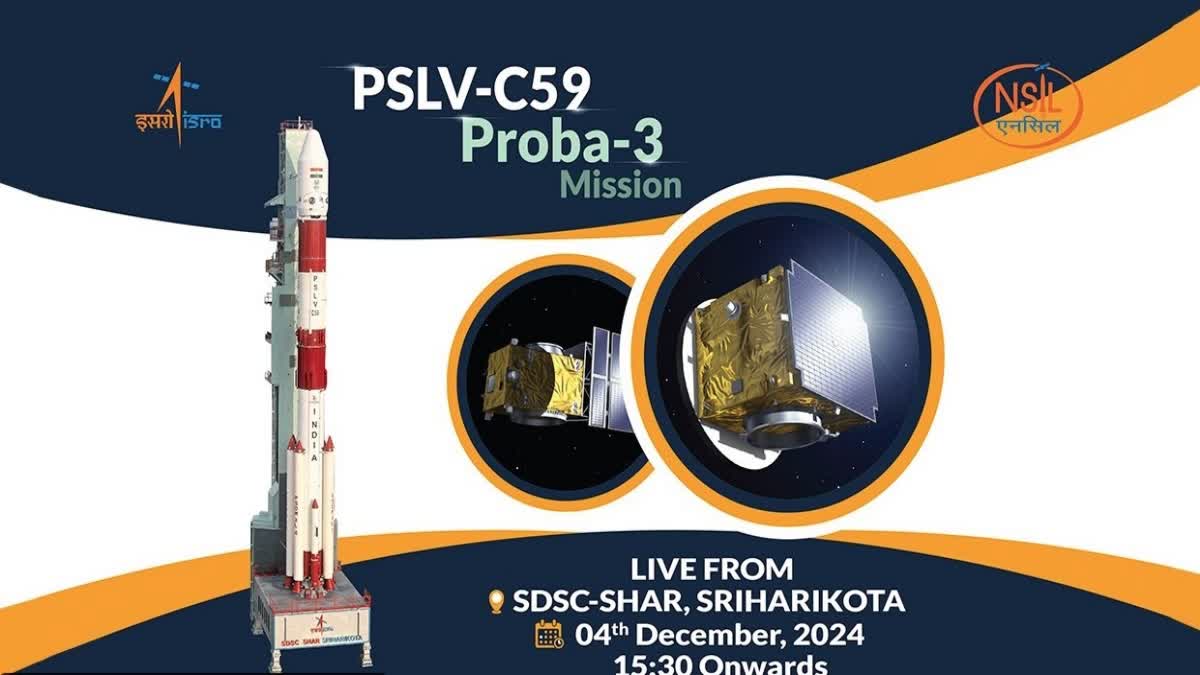Hyderabad: After years of hard work and dedication, the European Space Agency's (ESA) Proba-3 satellite is all set to be launched into space from Satish Dhawan Space Centre in Sriharikota today. The satellite will be carried by ISRO's PSLV-C59 vehicle containing two small spacecraft-- the Coronograph Spacecraft (CSC) and the Occulter Spacecraft (OSC) which will placed in a stacked configuration.
The successful launch of the PSLV-C59 will make it the 61st Polar Satellite Launch Vehicle and the 26th PSLV-XL satellite to be launched by ISRO (Indian Space Research Organisation). ESA chose ISRO to launch the Proba-3 space mission, indicating the PSLV's reliability for complex orbital deliveries.
🚀 Liftoff Day is Here!
— ISRO (@isro) December 4, 2024
PSLV-C59, showcasing the proven expertise of ISRO, is ready to deliver ESA’s PROBA-3 satellites into orbit. This mission, powered by NSIL with ISRO’s engineering excellence, reflects the strength of international collaboration.
🌌 A proud milestone in… pic.twitter.com/KUTe5zeyIb
Proba-3 mission: When and where to watch live
Proba-3 mission is set to take off from SDSC in Sariharikota today at 4:08 PM (IST). People interested in watching the launch of the Proba-3 can catch it live on ISRO's official YouTube channel. The stream will start at 3:30 pm (IST) onwards.
Proba-3 mission objective
The objective of this space mission is to demonstrate the precision formation flying of both the Coronograph and Occulter spacecraft. The launched satellite will use precise control techniques and measurements to position itself in space for long periods.
Both, the Coronagraph and the Occulter will form a special instrument, a solar coronograph that will observe the Sun's outermost part, called the Corona. It is hard to closely observe this part, as the corona temperature reaches 2 million degrees Fahrenheit. The study of the Sun is crucial as solar storms and winds that originate from the corona disrupt navigation, power grids, and satellite communications on Earth.
The Coronograph and the Occulter together will position themselves as a single satellite and form a solar eclipse which would last for six hours at a time compared to ten minutes during a natural eclipse.
After its successful launch, the Proba-3 will become the world's first "precision formation flying" satellite.



